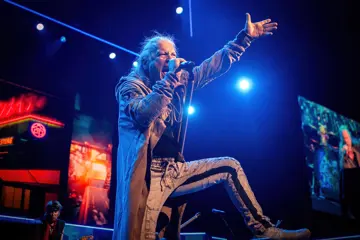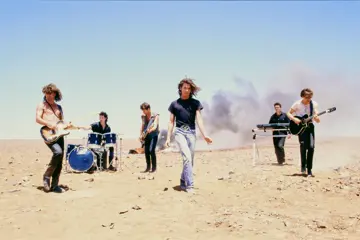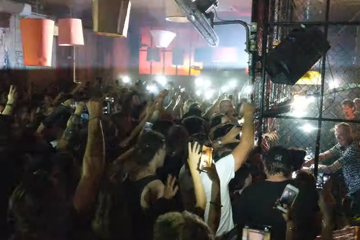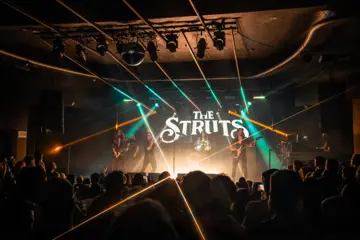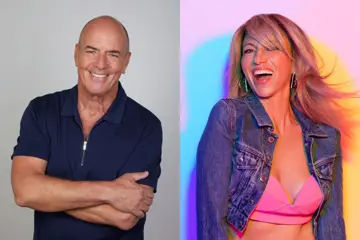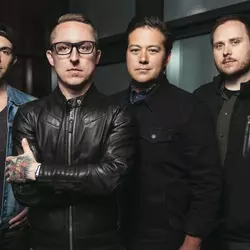 Yellowcard
YellowcardI don’t even know how to explain why it’s happening or what’s happening, but there are really big things happening for Yellowcard in Australia,” vocalist/guitarist Ryan Key gushes, pondering their upcoming jaunt alongside fellow Florida natives Mayday Parade. “Our last show in Sydney I think we played for around 2,500 people, and we’re coming back in July and playing a 5,000-seat room. We can’t do that anywhere else in the world. The show’s going to be the most epic thing we’ve ever done in Australia.”
Such success, as well as drummer/original member Longineu Parsons III’s recent departure, hasn’t necessitated the violin-wielding crew confine their creativity on new album, Lift A Sail. Key quickly reinforces the latest material’s shift was in no respect a calculated move, and certainly not an attempt to distance the band from their past. “We sat down and started writing songs. It just turned out that the songs were going in a new way, a new direction. It had nothing to do with what’s viable or not, or trying to be more viable than we were.
“I think that a lot of the bands that we grew up listening to very early in our lives as musicians, the bands that made us first pick up guitars in the early ‘90s. Our whole band, we were teenagers in the ‘90s, which was just an incredible decade of rock music. We noticed that bands like Smashing Pumpkins, Filter, Foo Fighters – and Third Eye Blind is a big influence on us. [Those influences] really started to push their heads through and make themselves present during these songwriting sessions, more so than some of the punk or pop/punk bands that also have been around for many years. That ‘90s alternative-rock music was the driving force for all of us when we decided we wanted to play music. Before the Warped Tour, before we got into punk bands, more of the pop-punk bands and stuff.
“In no way did we make this record to turn our back on anyone. But we started writing the songs and realised that we were heading in a really new direction, and that direction wasn’t so much pop/punk. I think the record is just a straight-up kind of pop/rock record. There’s a lot more straightahead rock elements, but also a lot of pop elements that we brought into the record too on the production side.
Don't miss a beat with our FREE daily newsletter
“We’ve gotten where we are in many ways due to the support of a community of music; I guess you would call that kind of pop-punk community. I’ve always had a problem with… This isn’t a real word, (but) the genre-fication of music, or art in general. I think it’s really restrictive. As a songwriter or a teacher or an actor, or whatever you are, you should have the opportunity to grow, expand, change and mature. I think if you are pigeonholed into one thing it really restricts you from doing that.”

